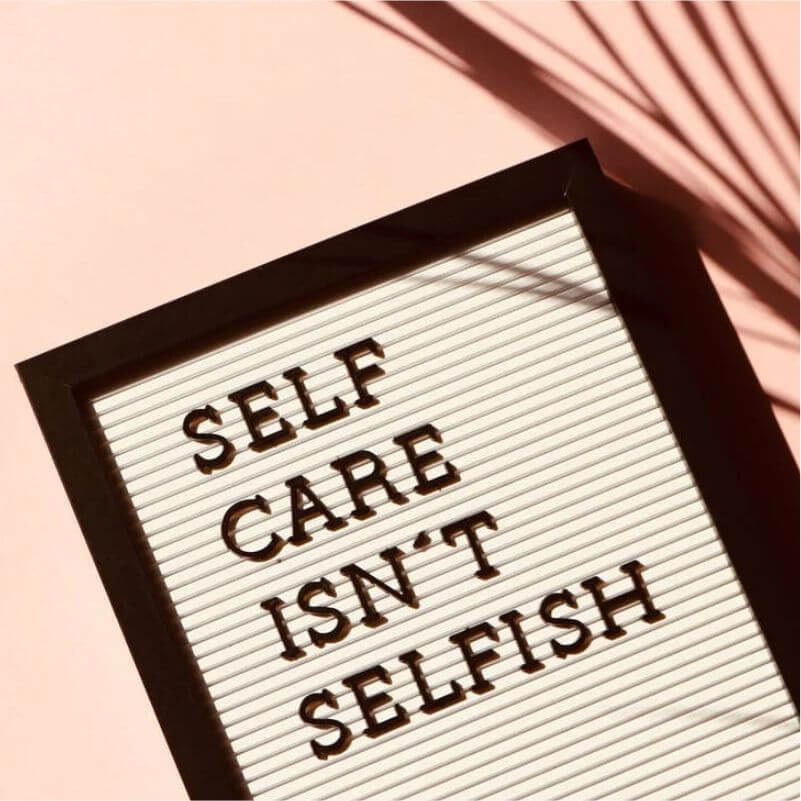Our emotional, psychological, and social well-being are all part of our mental health. It has an impact on the way we think, feel, and act. It also influences how we deal with stress, interacts with people, and make decisions. Mental health is crucial at all stages of life, including childhood, adolescence, and adulthood.
Mental health is more than just the absence of mental illness; it's vital to your overall health and quality of life. If you have a mental illness, self-care can help you maintain your mental health and support your treatment and recovery.
Self-care

Self-care means devoting time and effort to activities that benefit both your physical and emotional wellbeing. Self-care can help you manage stress, reduce your risk of disease, and boost your energy levels when it comes to your mental health. Even tiny daily acts of self-care can have a significant impact on life.
Here are some tips to help you get started with self-care:
Exercise regularly:
Exercise tends to be an often-neglected strategy in mental health care. Jogging, swimming, cycling, walking, gardening, and dancing are examples of aerobic exercises that have been shown to reduce anxiety and depression. Just 30 minutes of walking every day can help boost your mood and improve your health. Small amounts of exercise add up, so don’t be discouraged if you can’t do 30 minutes at one time.
Regular and healthy diet:

Obesity or being overweight can contribute to mental health issues. Some mental-health medicines cause weight gain, which aggravates the condition. Proper diet and exercise can help you lose weight and enhance your mental health. Eating habits can also affect sleep and therefore mental health. It may be beneficial to eat your main meal two to three hours before bedtime. A piece of fruit or a glass of milk is the greatest bedtime snack if you're hungry.
Plenty of water:
Drinking sufficient water is essential for good mental health.
Water is required for the production of neurotransmitters, which are chemicals that transmit signals between brain cells, as well as hormones that regulate body and brain functions. Even minor dehydration might make you angry and affect your cognitive abilities. Plenty of water can help you stay energized and focused all day. Limit caffeinated beverages like soft drinks and coffee.
Sleep is a priority:
Sleep helps in the recovery of both mental and physical stress.
Sleep and health are closely linked; poor sleep increases the risk of poor health, making it more difficult to sleep.
One of the earliest indicators of stress is sleep disruptions. Maintain a routine and make sure you receive adequate sleep. Blue light from smartphones and displays might make it difficult to fall asleep so limit your blue light exposure before bed.
Explore wellness programs:
Try relaxation or wellness programs or apps that incorporate things like meditation, muscular relaxation, and breathing exercises. Spend some time with your passion like drawing, painting, music, writing, etc. Schedule these and other beneficial activities regularly.
Set goals and priorities:

Burnout, stress, and despair are more common among people who have difficulty saying no at work. Because there is so much work and so little time, employees must learn that saying no is not only acceptable but also one of the most effective methods to prioritize mental health at work. Determine what has to be done right away and what can wait. If you start to feel like you're taking on too much, learn to say "no" to additional projects. At the end of the day, try to focus on what you've done rather than what you haven't.
Be positive and grateful for your blessings:
Concentrate on the positives. Recognize and fight your negative and unhelpful thoughts. Remind yourself of your blessings every day. Be specific. Write them down at night, or replay them in your mind. Negative thoughts do not vanish overnight. However, you can train yourself to have a more cheerful view with practice.
Socialize:
Socializing not only helps you avoid loneliness, but also improves your memory and cognitive skills boost your happiness and well-being, and may even help you live longer. The greatest way to interact is in person, but technology can also help.
Conclusion:
It is critical to be aware of your overall health in order to notice any signs and seek professional help when necessary.
While everyone is aware of the symptoms and treatment options for common illnesses that affect their loved ones, such as the flu, migraines, and (most recently) COVID-19, many people are unaware of how to care for their mental health. Raising mental health awareness can help you understand your symptoms, receive expert support, and, perhaps most significantly, break the stigma surrounding mental illness that keeps so many people suffering in silence.
